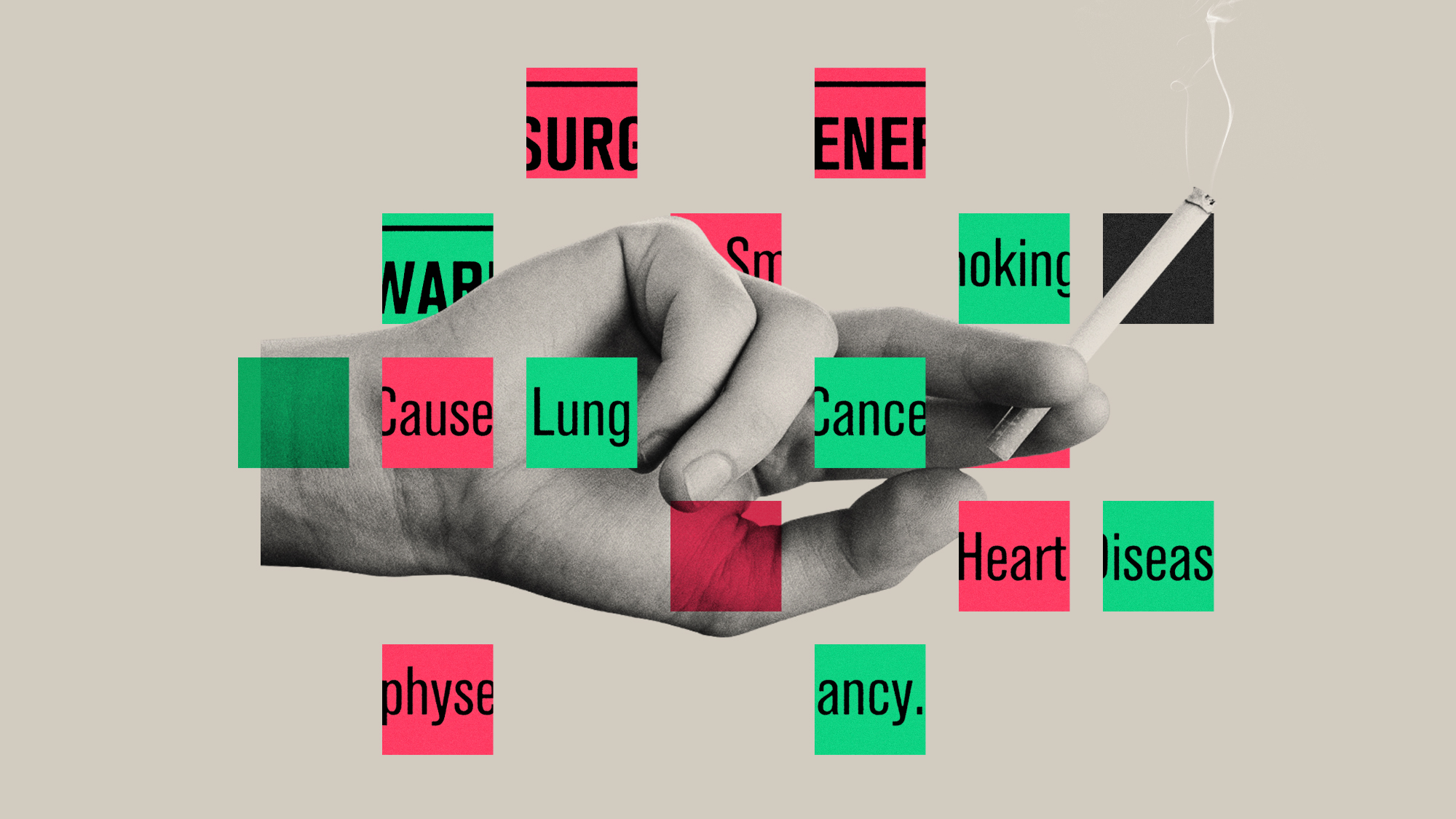Is this the end of cigarettes?
An FDA rule targets nicotine addiction


A free daily email with the biggest news stories of the day – and the best features from TheWeek.com
You are now subscribed
Your newsletter sign-up was successful
Cigarettes were once ubiquitous in American life. That's changed over the last 50 years as tobacco advertising disappeared from the airwaves and a massive health campaign discouraged Americans from smoking. Now cigarettes themselves might be all but regulated out of existence.
Nicotine levels in cigarettes would be "drastically lowered" under a new proposal from the Food and Drug Administration, said NBC News. The goal is to render cigarettes practically impotent, less able to lure new and occasional users into addiction. Nicotine is "what hooks you" on tobacco products, said Dr. Richard Besser of the Robert Wood Johnson Foundation. Smoking still kills nearly a half-million Americans every year. The new rule would slash nicotine levels in cigarettes by 95%. "The cycle of exposure to these toxic chemicals can be broken," said the FDA's Brian King.
What did the commentators say?
The FDA "just kinda, sorta banned cigarettes," said Nicholas Florko at The Atlantic. Without the high nicotine levels that they currently contain, cigarettes are "just smoldering leaves wrapped in some fancy paper." While not technically a cigarette ban, the term is still apt: The FDA estimates that the rule would prompt 13 million people to quit smoking within a year after it takes effect. That could effectively be the "end of cigarettes," Florko said. And with it, a drop in cancer deaths. The proposed nicotine rule is "wonderful news for just about everyone except tobacco executives."
The Week
Escape your echo chamber. Get the facts behind the news, plus analysis from multiple perspectives.

Sign up for The Week's Free Newsletters
From our morning news briefing to a weekly Good News Newsletter, get the best of The Week delivered directly to your inbox.
From our morning news briefing to a weekly Good News Newsletter, get the best of The Week delivered directly to your inbox.
The "de facto cigarette ban" would "expand the disastrous war on drugs," said Jacob Sullum at Reason. But the war on drugs has given no reason to think it would be successful to broaden it to "include products that are regularly consumed by nearly 30 million American adults." Not only would the nicotine limits effectively ban cigarettes currently on the market, they would also create a black market for smokers looking for their next fix. History demonstrates that "prohibition doesn't end the demand for these products," said Neill Franklin, former director of the Law Enforcement Action Partnership.
What next?
The FDA proposal came about during the last days of the Biden administration. But President Donald Trump has a history of taking on "Big Tobacco," said Dr. Brian Williams at The Milwaukee Journal Sentinel. In 2019, the first Trump administration proposed raising the tobacco purchase age from 18 to 21. Reducing nicotine levels "would build on that important public health work." And it would fit the "Make America Healthy Again" agenda of Robert F. Kennedy Jr., Trump's nominee to lead the Department of Health and Human Services. The rule "will improve the health of smokers and those around them," said Williams.
The rule might be a blow to cigarettes, but it's not the end of nicotine use in America. The FDA in mid-January endorsed the health benefits of nicotine pouches like Zyn, said The Associated Press. The move doesn't mean that the smokeless products — which contain no tobacco, just nicotine and flavoring — are safe. They're just "less harmful than older alternatives."
A free daily email with the biggest news stories of the day – and the best features from TheWeek.com
Joel Mathis is a writer with 30 years of newspaper and online journalism experience. His work also regularly appears in National Geographic and The Kansas City Star. His awards include best online commentary at the Online News Association and (twice) at the City and Regional Magazine Association.
-
 How the FCC’s ‘equal time’ rule works
How the FCC’s ‘equal time’ rule worksIn the Spotlight The law is at the heart of the Colbert-CBS conflict
-
 What is the endgame in the DHS shutdown?
What is the endgame in the DHS shutdown?Today’s Big Question Democrats want to rein in ICE’s immigration crackdown
-
 ‘Poor time management isn’t just an inconvenience’
‘Poor time management isn’t just an inconvenience’Instant Opinion Opinion, comment and editorials of the day
-
 Scientists are worried about amoebas
Scientists are worried about amoebasUnder the radar Small and very mighty
-
 A Nipah virus outbreak in India has brought back Covid-era surveillance
A Nipah virus outbreak in India has brought back Covid-era surveillanceUnder the radar The disease can spread through animals and humans
-
 Deaths of children under 5 have gone up for the first time this century
Deaths of children under 5 have gone up for the first time this centuryUnder the radar Poor funding is the culprit
-
 A fentanyl vaccine may be on the horizon
A fentanyl vaccine may be on the horizonUnder the radar Taking a serious jab at the opioid epidemic
-
 Health: Will Kennedy dismantle U.S. immunization policy?
Health: Will Kennedy dismantle U.S. immunization policy?Feature ‘America’s vaccine playbook is being rewritten by people who don’t believe in them’
-
 Stopping GLP-1s raises complicated questions for pregnancy
Stopping GLP-1s raises complicated questions for pregnancyThe Explainer Stopping the medication could be risky during pregnancy, but there is more to the story to be uncovered
-
 More adults are dying before the age of 65
More adults are dying before the age of 65Under the radar The phenomenon is more pronounced in Black and low-income populations
-
 Ultra-processed America
Ultra-processed AmericaFeature Highly processed foods make up most of our diet. Is that so bad?
